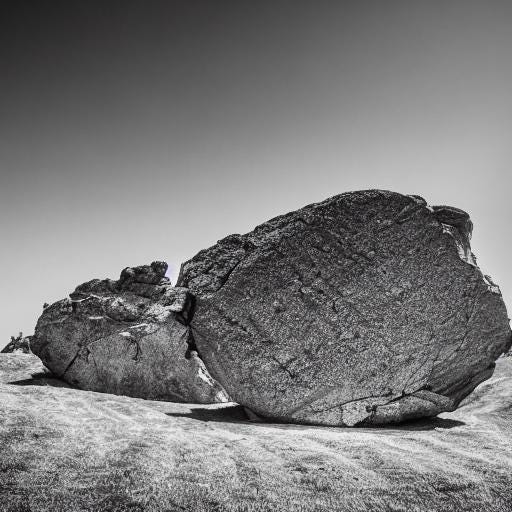Probably few days in the liturgical calendar get as neglected as Holy Saturday. I dare say most Protestants don't know what to do with it. I hadn't planned to write anything Easter themed this year, but here we are.
The readings set down for today include Ps 88, Job 14.1-14, 1 Peter 4.1-8, and Luke 23.50-56. One would struggle to pick a more depressing pair than the first two. Psalm 88 is probably one of the darkest of the Psalter. It is a psalm of overwhelming sorrow and virtually despair. It ends with the bitter note "all my friends are darkness". There is no resounding note of hope, no pivot, no light of salvation. Job 14 is similarly a dark place, as Job anticipates the sheer depths of Sheol, a place where God is not praised and from whence no when returns.
Holy Saturday is a day of dark waiting. Jesus is in the grave. He is among the dead. The disciples are exhausted by the previous two days. Presumably they didn't sleep on Thursday night, they probably had restless, broken, troubled snatches of sleep on the night after the crucifixion, if at all. So physically they are just exhausted. Emotionally they are shattered. Spiritually they are broken. Jesus, all their hope and joy, is dead. And there is nothing to do, but wait. I imagine the disciples did remember his repeated prediction to rise on the third day, but it runs so contrary to their expectations that I doubt they could entertain that hope with earnestness.
But, in the language of the Black Church, Sunday is coming. We wait in the darkness, the silence, the weeping, the travails of life, the persecutions of faith, the sorrows of our common lot. But Sunday is coming.
Where was Jesus on the Saturday? He descended to the dead. The best read on this is Matthew Emerson's "He Descended to the dead: An evangelical theology of Holy Saturday", but let me give you the shortest version possible : Jesus (as a human soul) descended to the place of the dead, generally called Sheol or Hades in the Bible, and proclaimed there his victory over God's enemies to other dead souls. We wait, while Jesus is dead. But if he descended, he also ascended (Eph 4:9-10). We now wait, not in the uncertainty and despair of the first disciples on that first Saturday, that last Sabbath of the old order. No, we wait now in the recurring Sabbath of the new order, longing for Christ to up from the grave, the Life of the world bursting forth because Death could not hold him down. We wait in Darkness for the Light to Dawn once more. We wait for Job's cry, "If a person dies, will they live again?" to receive a resounding answer, "Yes, Yes!"
And so we wait through the silence and the darkness. Sunday is coming.



